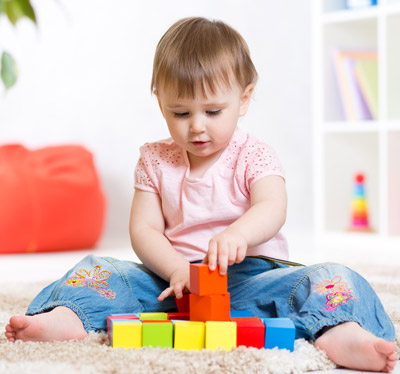
PROGRAMS
Daily Reporting
 DO YOU KNOW WHAT YOUR CHILD DID TODAY? With Bright Days, you will always know. You will receive photos and videos of your child that will give you a view of their day. Daily reports keep you informed of the daily activities and learning experiences that happen while you are at work. We believe that the connection between parents and our Early Childhood Educators is crucial for early childhood development. We offer a convenient software solution to provide communication and daily reports to all parents. Notifications are sent via email and parents can also download the free app to any smartphone. You can rest easy knowing that all reports are private and secure. The software/app that we use is called HiMama. To learn more about the app and to see what your reports will look like, you can check out their website.
DO YOU KNOW WHAT YOUR CHILD DID TODAY? With Bright Days, you will always know. You will receive photos and videos of your child that will give you a view of their day. Daily reports keep you informed of the daily activities and learning experiences that happen while you are at work. We believe that the connection between parents and our Early Childhood Educators is crucial for early childhood development. We offer a convenient software solution to provide communication and daily reports to all parents. Notifications are sent via email and parents can also download the free app to any smartphone. You can rest easy knowing that all reports are private and secure. The software/app that we use is called HiMama. To learn more about the app and to see what your reports will look like, you can check out their website.
The daily reports include what your child ate at meal and snack times, your child’s nap time and duration, and diapering/potty times and details. As well, the report includes many photos and videos of each of the curriculum activities for the day including science and sensory; mindfulness; meal time; language/reading; yoga; math; care of environment; song & dance; and craft time.
![]()
ONGOING DEVELOPMENTAL REPORTING is included in the daily reports. The reports are tailored specifically to each child’s developmental age, and give parents an idea of the new skills that their child is developing and learning. Through these reports, you will be able to watch your child’s progress in all of the key areas of early childhood development. This will also give you ideas of what to work on with your child at home to ensure that they are reaching their maximum potential.
The key areas of developmental reporting include social-emotional development, communication, language and literacy development, cognitive development and physical development. You will see photos and videos with specific activities throughout each day. The activity descriptions will also include the category of development they fall into as well as the specific skill that your child is learning during that activity. As well, if there is something specific that you would like the Early Childhood Educator to work on with your child, that can be included in the daily reports as well (ie: potty training; sharing; manners; emotional regulation; etc.)
TYPES OF DEVELOPMENTAL SKILLS included in the reports will vary based on the child’s age/developmental stage. Below is a list of some examples for all ages groups from infant to preschooler.
Social and Emotional Development:
Social Skills:
Social interest; imitation; simpler turn taking; maintaining connection across space; perspective taking; parallel play; making friends; conflict resolution and social problem-solving skills; peer group entry skills; helping skills; interacting positively and respectfully; co-operating; empathy; taking another person’s point of view; and interacting with adults.
Emotional Skills:
Expression of emotions and feelings; self-regulation; empathy; sense of self; empathy; agency; autonomy; identity formation; self-concept; self-esteem; recognizing and expressing emotions; regulating attention, emotions and behaviour; positive attitudes towards learning.
Communication, Language & Literacy Development:
Non-verbal communication skills; receptive language skills; expressive language skills; verbal communication skills; using English and a second language if applicable; vocabulary; conversing with peers and adults; using descriptive language to explain, explore and extend; listening to others; enjoying literacy; using and understanding the power of literacy; retelling stories; phonological awareness; letter recognition; understanding the orientation of print; matching spoken words with written ones; beginning to write letters and some high-frequency words.
 Cognitive Development:
Cognitive Development:
Attention regulation; problem-solving; cause-and-effect exploration; spatial exploration and problem-solving; memory; sorting; self-regulation; symbolic thought; questioning; observing; collecting and organizing information; communicating findings; reasoning logically; counting; determining quantity; comparing quantities; representing numbers; understanding two-dimensional and three-dimensional shapes; identifying patterns; measuring length, weight and capacity, temperature, time, and money; completing simple number operations; using number symbols; using spatial relations, directions, maps.
Physical Development:
Gross motor skills; fine motor skills; the senses; sensory motor integration; increasing levels of activity, endurance, and variation in types of activity and skills; auditory skills and music.